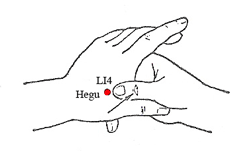Spotting is a common problem for pregnant women, with as many as 20 percent of pregnancies experiencing spotting at some point during the first trimester. During the second trimester, the glandular cells on the cervix will fall off, which may also cause such symptoms. It is easy to panic when you see spotting during pregnancy, but it is important to remember that most women who have this symptom continue to have a normal and healthy pregnancy. Knowing some possible causes of spotting in late pregnancy can ensure you a more safe pregnancy.
Possible Causes of Spotting in Late Pregnancy
Common Causes of Spotting in Late Pregnancy
- Placental Abruption
After the 12th week of pregnancy, bleeding could be a sign that something is wrong with the placenta and its attachment to the uterine wall. If the placenta has started to pull away from the uterine wall, it could cause bleeding. You will need to treat this quickly, because it may rob your baby of vital nutrients and oxygen.
- Preterm Labor
Preterm labor comes on very quickly so it is important to observe your symptoms and act. Usually, this condition will start with leaking fluid, changes in your vaginal discharge, pains similar to menstrual cramps, backache or bleeding. If you are experiencing symptoms of preterm labor, just call medical help immediately.
- Placenta Previa
In most cases bleeding during the third trimester indicates that the placenta has attached to the upper uterus. Placenta previa is the opposite condition where the placenta has attached to the lower uterus which involves several weakened blood vessels. It can be dangerous for you and your baby if you have the placenta previa condition. Because when these vessels burst, it will cause bleeding and could lead to preterm labor, hemorrhaging, anemia or placental abruption.
- Start of Labor
Labor will usually start with spotting. If you are at the very end of your pregnancy and notice you are giving off a brown, red or pink discharge, you may be in labor or going to labor. If your cervix is dilating to prepare for labor, it could cause you to pass the mucus plug. This is commonly tinged with blood, which is also called “bloody show.” Some women do not pass the mucus plug until very late in their pregnancy, so you do not need to worry if you are already 37 weeks along and this has not arrived. However, if your mucus plug has a great deal of blood or you have experienced additional bleeding or spotting, you should speak to your doctor.
Less Common Causes of Spotting in Late Pregnancy
- Cervix Infections
Spotting may be caused by a condition unrelated to your pregnancy, such as a vaginal infection or sexually transmitted infection. These conditions irritate the cervix then cause spotting. A pap smear might also cause slight spotting.
- Uterine Rupture
A uterine rupture during labor could cause you to experience bleeding. Those with scarring on the uterus or those who have experienced severe abdominal trauma are at a higher risk for this condition.
- Sex
Pregnant women may experience spotting after sex if the cervix has been irritated. Let your doctor know if you had sex before you noticed the blood.
- Vasa Previa
Vasa previa is a rare condition that causes the baby’s blood vessels within the placenta or umbilical cord to move into the birth canal. This is quite rare, but it can be very dangerous because this could cause the vessels to tear, causing the baby to lose oxygen or bleed severely. Those experiencing vasa previa will also notice excessive bleeding and abnormal fetal heart rate. In such condition, you should go to the hospital at once.
When to Worry About Spotting in Late Pregnancy
A small amount of blood late in pregnancy is common, but it is rare for heavy bleeding to occur at this stage. A blood stained discharge is a sign that your body is preparing for labor. You should be concerned if the blood is:
- Bright red which occurs suddenly without pain. This occurs when the placenta is partially or completely covering the cervix.
- Usually filled with clots, blood is freshly red or old dark can be concerned. If this blood also comes with pain, it could be a sign of a placental abruption where the placenta has separated from the uterus.
How to Deal With Abnormal Bleeding During Pregnancy
Because bleeding during the third trimester could be the sign of a serious problem, you are expected to keep track of how much you are bleeding and what the bleeding is like (clots, color, etc.) and report this information to your doctor right away. If you pass any tissue, bring a sample to your doctor for testing. You will likely have an ultrasound to determine the cause of your bleeding.
If you are experiencing bleeding, do not have sex or use tampons. Use a pad to monitor your bleeding for your doctor. Call emergency medical services if you experience severe symptoms including:
- Severe bleeding with or without pain
- Severe pain or intense cramping in the lower abdomen
- Dizziness or fainting
- Discharge with tissue from the vagina
- Fever over 100.5 degrees Fahrenheit
- Chills






